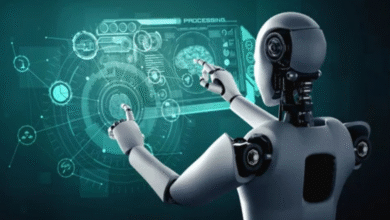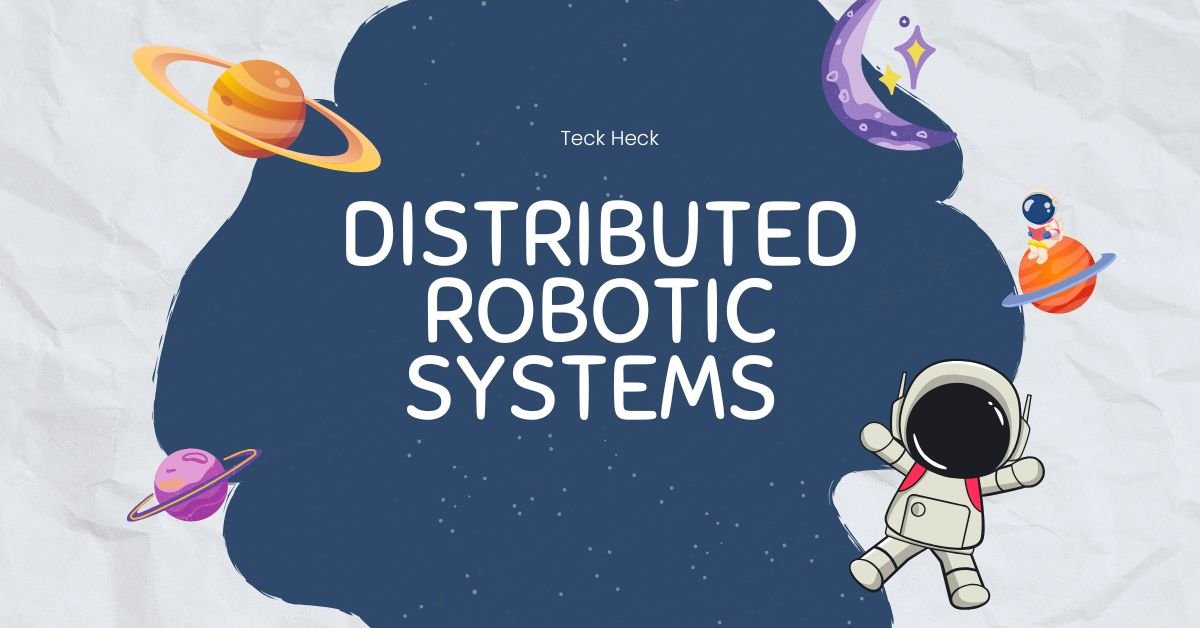
The concept that scientists call Artificial Intelligence for Business Automation exists now in reality instead of remaining trapped in science fiction or laboratory environments. AI technology has started to transform entire industries throughout the world by transforming business operations while also enhancing production and efficiency, along with innovation. AI delivers its most significant impact through business automation within the current business environment.
The implementation of technology to handle jobs that were earlier done by humans defines the process of business automation. Organizations leverage this technology to cut costs but also achieve operational optimization while optimizing customer journeys before achieving increased financial success.
The research examines the impact of AI-driven business automation on several industries and its advantages to companies, together with implementation issues.
What is Business Automation?
Artificial Intelligence for Business Automation tools let organizations perform repetitive tasks that do not need human operators. Traditional businesses have depended on human workers to complete these tasks until digital advancements enabled robotic and AI and machine learning technology to replace traditional human work in various functional areas.
The implementation of automation in businesses extends to diverse operational duties such as data entry and invoicing, customer service operations, as well as inventory monitoring and additional tasks.
Artificial Intelligence for Business Automation: A Powerful Partnership
Machine or software technology enabled through AI executes the ability to replicate human intellect by learning, reasoning, solving problems, and perceiving the world. The implementation of Artificial Intelligence for Business Automation enables machines to execute tasks exceeding the original capabilities of traditional systems, which were formerly considered unautomatable before AI integration.
Industrial operations utilize artificial intelligence units to work with automation systems, which create substantial business benefits in various fields.
Robotic Process Automation (RPA):
RPA depends on AI-powered programming robots that automate operational workflows consisting of repeated rules and procedures. AI-enhanced RPA goes beyond traditional automation because it processes defined tasks in addition to handling scenarios that need adaptable decision-making abilities. An AI bot uses its interactions to learn from the process it performs, which involves invoice automation and document analysis, while also developing enhanced capabilities over time. Businesses achieve threefold benefits of reduced manual work, together with time conservation and better accuracy through the use of this technology.
Machine Learning for Predictive Analytics:
Artificial Intelligence for Business Automation tools allow businesses to assess big data collections in order to generate accurate predictions regarding upcoming market movements and customer behavior. Businesses use predictive models to forecast product demand within their operations, thus they can optimize inventory management and enhance their supply chain efficiency. The automation of these operations enables organizations to base their choices on data, which creates both operational excellence and increased profitability.
Chatbots and Virtual Assistants:
Customer service management achieved one of its significant breakthroughs through Artificial Intelligence for Business Automation systems. AI-powered chatbots, along with virtual assistants, function alone to provide support for customers’ inquiries while recommending solutions for their issues. Various AI-powered tools already support numerous organizations in handling their customer support operations, marketing activities, and managing online sales for their businesses. String session technologies embedded in social media networks and websites deliver automated customer support during all hours of operation and help guide website visitors toward purchase decisions, along with answering standard queries.
Natural Language Processing (NLP) for Document Automation:
Natural Language Processing (NLP) functions in Artificial Intelligence as a system that enables machines to process, understand, and create human language content. The application of NLP proves beneficial for making tasks easier, including document and textual materials. AI systems work in a way that enables the automatic extraction of essential information from contracts, along with invoices, and both emails and unstructured data documents. AI systems can create reports, together with summaries and content, automatically. The automation of document review decreases business costs while creating time savings for both staff and organizational resources.
AI in Decision-Making:
The implementation of AI automates challenging decision systems that either work with extensive information collections or demand precise results. The analysis of data with AI produces immediate recommendations that benefit finance institutions and healthcare operators, along with marketing entities. Medical AI systems help healthcare providers identify diseases correctly while proposing treatment methods and supporting entire patient treatment cycles.
Benefits of AI-Powered Business Automation:
When businesses join Artificial Intelligence for Business Automation, they gain multiple advantages. When used for automation functions, AI helps organizations boost their operational output, along with their financial results. Business automation with AI provides multiple significant advantages to users.
1. Increased Efficiency and Productivity
Machine automation makes human resources available to carry out strategic activities of high value. Operation efficiency improves because AI automation systems complete work at faster speeds and with higher accuracy than human beings do. CartBots collaborate with AI chatbots to process customer inquiries at high speed, which decreases waiting periods and builds customer satisfaction. The analysis of large datasets takes only seconds for AI systems, which is considerably lower than the time needed by humans to perform the same work.
2. Cost Reduction
AI automation enables businesses to decrease their expenses by eliminating the requirement for human participation in standard work activities. Businesses experience lowered staff expenses, together with decreased manual work mistakes and labor cost reduction. Payment automation, together with invoicing automation, diminishes administrative costs, and AI systems optimize supply chains to cut down production costs while preventing waste.
3. Improved Accuracy and Reduced Errors
People make mistakes automatically since they perform monotonous assignments that need careful examination. These systems demonstrate superior accuracy when completing work tasks because Artificial Intelligence for Business Automation systems perform their functions with high precision. Small mistakes that develop from human errors could cause significant problems in financial reporting, together with data entry and inventory management systems.
4. Enhanced Customer Experience
AI-based automation systems within customer service allow organizations to create consistent delivery of tailored solutions for their consumers. Chatbots perform instant service by meeting customer needs and resolving complaints through personalized recommendations for each user. Businesses that implement automatic customer service functions will deliver rapid responses together with dependable service while improving client satisfaction.
5. Scalability
Organizations need adaptable systems whenever their customer base expands. The ability of AI automation systems enables businesses to manage higher workloads while avoiding new staff employment costs. Through its automation capabilities, AI extends the company’s processing power by increasing its ability to manage high volumes of work at scale without impacts on quality or efficiency standards.
6. Better Decision-Making
Through large-scale data processing capabilities, AI tools let businesses follow significant business trends, which lets them improve their tactical decisions. 
Conclusion
The implementation of Artificial Intelligence for Business Automation results in changes that lead to greater operational efficiency, lowered expenses, and advanced decision-making capabilities for different industries. Businesses can establish a market advantage in today’s digital environment through the application of AI, which helps perform regular procedures and deliver improved user experiences, together with data-based decisions.
The right strategy enables businesses to access new productivity heights that AI provides in the dynamic business environment.



